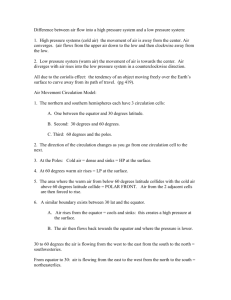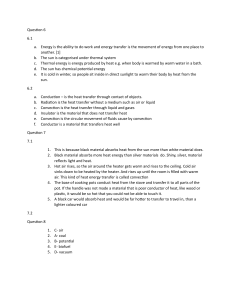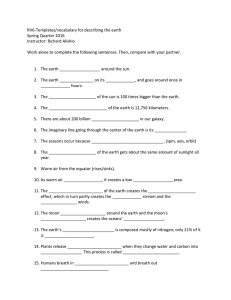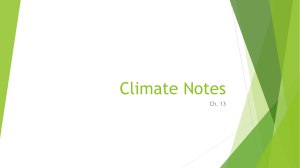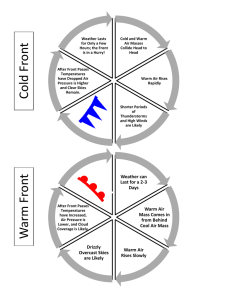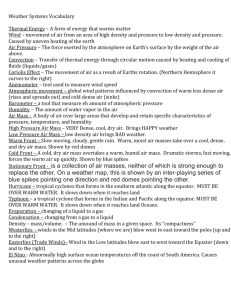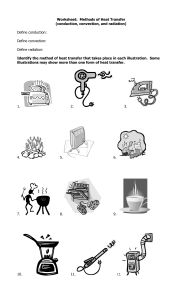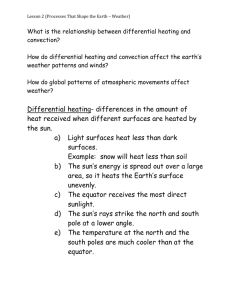Heat Transfer Review
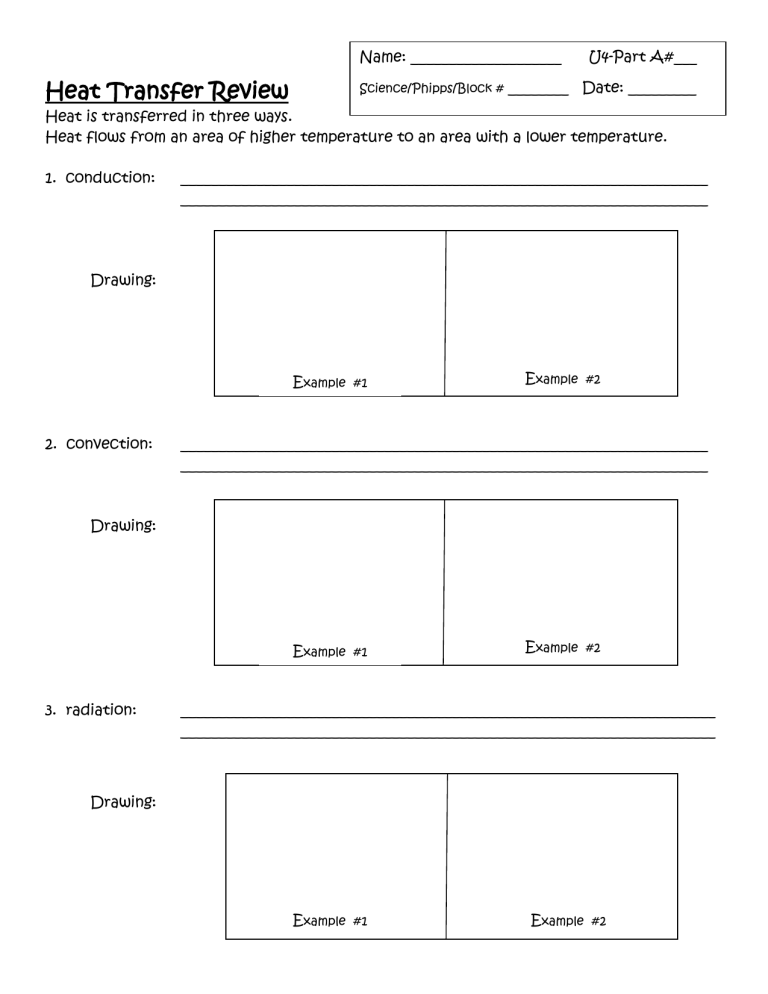
Heat Transfer Review
Name: ____________________ U4-Part A#___
Science/Phipps/Block # ________ Date: _________
Heat is transferred in three ways.
Heat flows from an area of higher temperature to an area with a lower temperature.
1. conduction: ______________________________________________________________________
______________________________________________________________________
Drawing:
E xample #1
E xample #2
2. convection: ______________________________________________________________________
______________________________________________________________________
Drawing:
3. radiation:
E xample #1
E xample #2
_______________________________________________________________________
_______________________________________________________________________
Drawing:
E xample #1 E xample #2
INDEPENDENT PRACTICE:
1.
List the three ways heat can be transferred from one spot to another:
________________________________ ____________________________ _______________________________
2.
Which form of heat transfer can occur through empty space? _____________________________
3.
Which form of heat transfer occurs in liquids and gases? ___________________________
4.
Which form of heat transfer occurs by direct conduct? ____________________________
5.
Heat always moves from an area of ________________________ temperatures to _________________________ temperatures.
-Determine the type of heat transfer that is going on in the following situations.
Options: radiation, conduction, or convection
1.
You burn your hand on a hot light bulb. _______________________________________
2.
An air current allows heat to be transferred from the equator to the North Pole.
___________________________________
3.
A cloud is formed when hot air rises and then cools. ______________________________
4.
The sun’s energy reaches the surface of Mercury ________________________________
5.
The air directly above the fire felt warm. _______________________________________
6.
Copper was a better conductor than the other metals. ___________________________________________
7.
Hot air rises, cold air sinks. ___________________________________________
8.
The seat was very warm when I sat down in it. _________________________________
9.
The ice melted as it was placed on the metal plate. _____________________________
10.
Air in the atmosphere continuously moves. At the equator air rises and at the poles it sinks.
_____________________________________
11.
The main way liquids transfer heat is through ___________________________________.
12.
The light bulb allowed my hands to get warm as I held them close. ____________________________________
-Earth Energy Budget:
1.
Draw a picture which demonstrates how energy is absorbed or reflected. (Be sure to include %)
2.
________ % is absorbed by the __________________ and land.
3.
The _________________ reflects approximately 20-30%.
4.
Explain why the earth’s surface is not heated evenly. (hint…2 reasons) a.
_____________________________________________________________________________________________
_____________________________________________________________________________________________
_____________________________________________________________________________________________ b.
_____________________________________________________________________________________________
_____________________________________________________________________________________________
_____________________________________________________________________________________________
5.
Why does the temperature of our planet remain in a constant balance?
-Factors of Weather: Temperature
6.
What is the source of heat for Earth?
7.
What happens to MOST of the heat radiated from the sun?
8.
What happens to MOST of the sunlight that enters Earth’s atmosphere?
9.
What does heat radiated from Earth’s surfaces do?
-Temperature Continued: Factors of Heating
10.
Why is the air around the equator warmer than the air around the North or South Poles?
11.
How do clouds prevent the Earth from becoming warmer during the daytime?
12.
Why does warm air rise?
